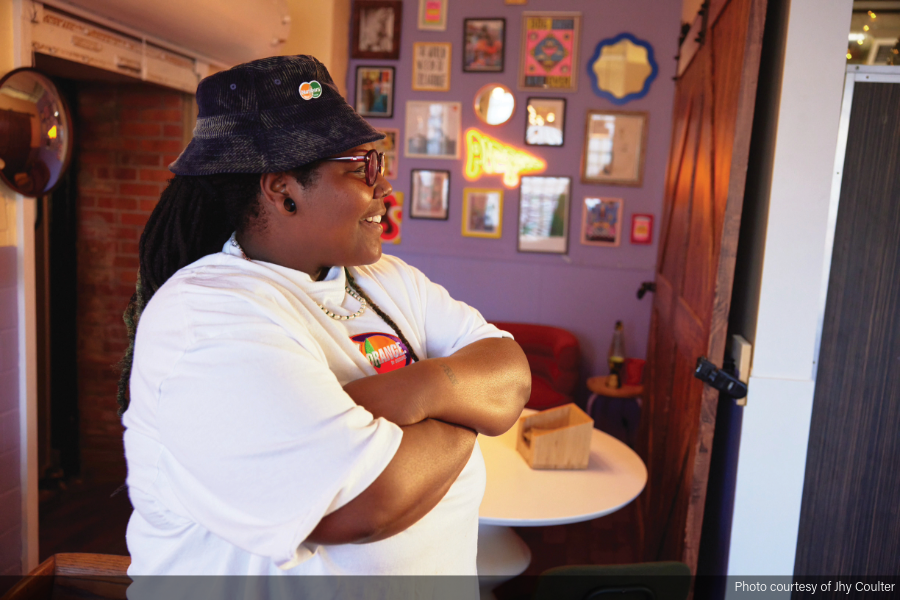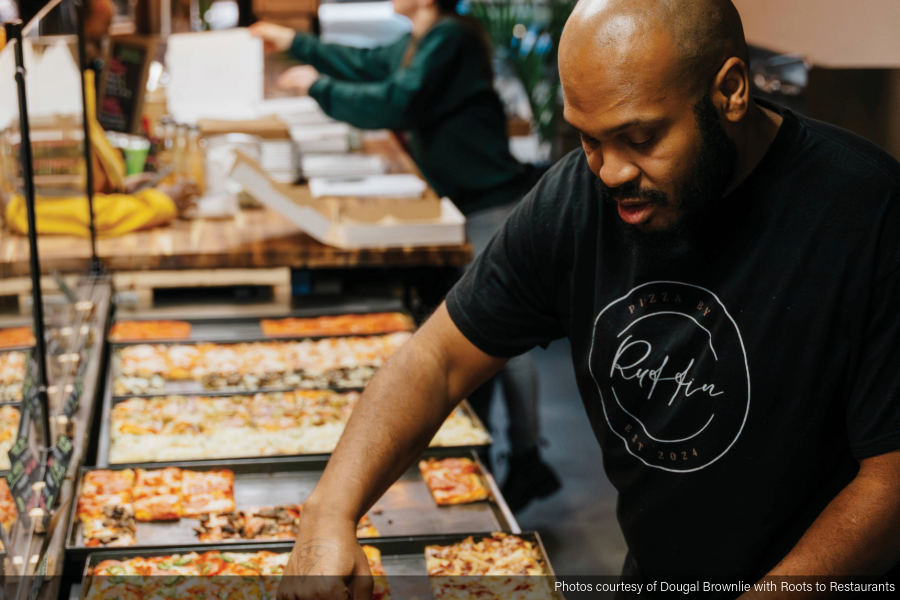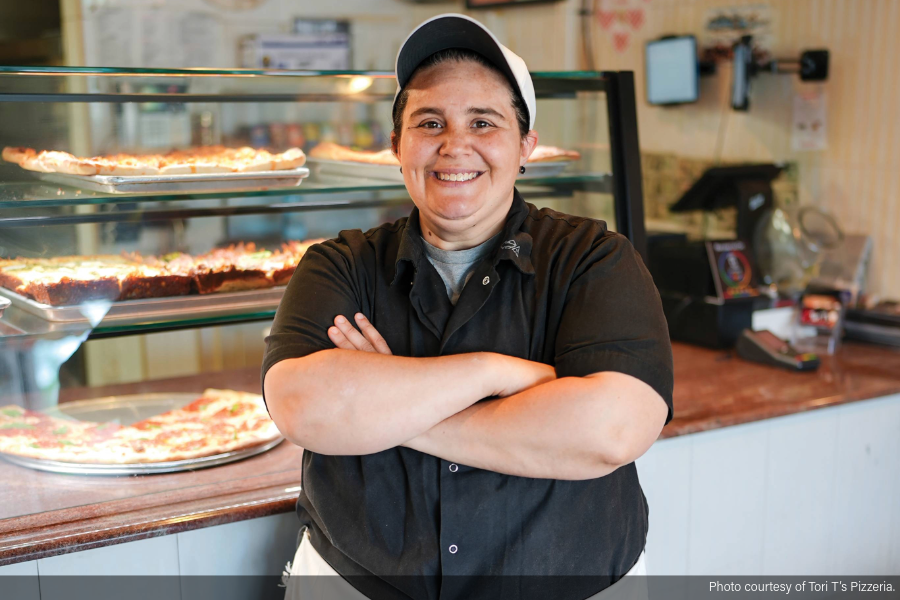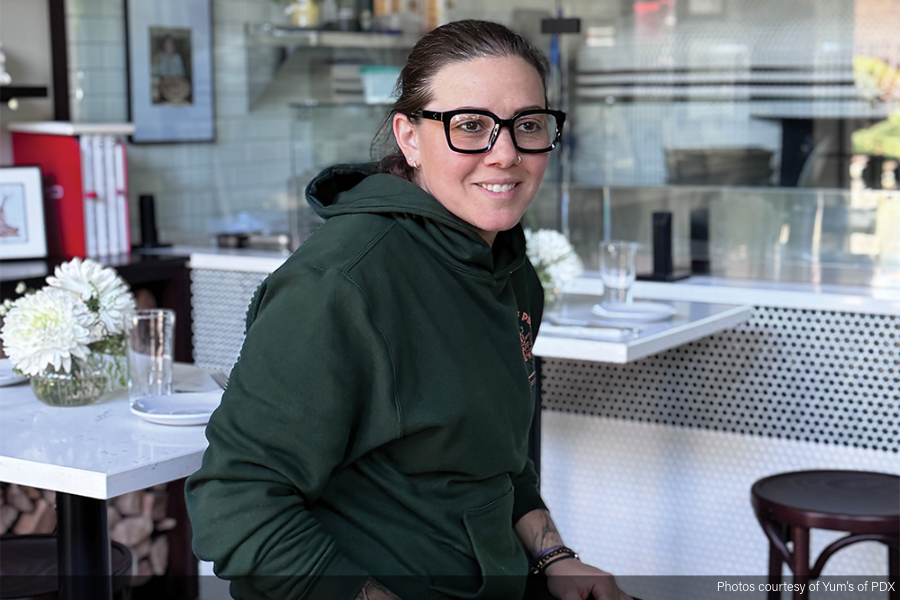Regulations vary, so pizzeria owners look to local authorities, friendly competitors and the Internet for best practices
Act quickly, but don’t panic. That’s the advice from pizzeria owners who have had employees test positive for COVID-19. As the number of cases continues to rise nationwide, restaurant operators must figure out what to do if a worker becomes infected with the new coronavirus. Regulations vary, so employers develop protocols based on a combination of local and state laws, guidance from the National Restaurant Association and the Centers for Disease Control and Prevention (CDC) and from each other. To safeguard employees’ and customers’ health, owners said they did more than what was recommended.
Make the call
One night, as State of Mind Public House and Pizzeria in Los Altos, California was nearing closing time, chef and co-owner Lars Smith got a call from an employee who, four days after working a shift, felt sick with COVID-19 symptoms. Smith told the employee to get tested, then called the Santa Clara County 24-hour COVID-19 hotline for advice. “I am an advocate of deferring to experts,” he says.
The county, which also has information on its website, recommends having the employee self-isolate for 10 days from the date symptoms began, and three days with no fever and improved respiratory symptoms. Also, the county recommends the restaurant close for 48 hours to deep clean and sanitize.
Stay closed until it’s safe
Smith let employees know what was going on, then posted information on social media the next morning. Lars, his brother and business partner Andrew, and other owners and family members cleaned the place, and also had their regular cleaning company sanitize. They decided not to reopen for 11 days. “We chose to close to get everyone tested, which is not required,” Smith says. “We thought it was the responsible thing to do.”
Smith provided employees with information on where to get free testing. When the sick employee tested positive, Smith had to figure out, per the county’s recommendations, how many days coworkers had to stay isolated. The county recommends the employer determine which people were in close contact, defined as within six feet for more than 15 minutes – in this case, everyone in the kitchen – and tell them to self-isolate for 14 days. “There was some complicated math,” Smith says. Not all employees could return when State of Mind Public House and Pizzeria reopened, so Lars worked in the kitchen.
The temporary closure was financially cumbersome, Smith says, because the owners paid employees for those days. When they reopened, customers came back, and they also posted on social media. “Most of the comments we got was, ‘Thank you so much for being honest and transparent,’” he says.
Be Transparent
Social media plays a big role in how pizzeria owners keep customers informed about an employee testing positive. “If you don’t tell your customers, and your employees tell them through a social media post, how would that look?” says Sammy Mandell, owner of the two-location Greenville Avenue Pizza Company in Dallas. “It’s better for you to deliver the communication to your customers than it is for an employee to do it.”
When a GAPCo employee called and said she was feeling sick with COVID-19 symptoms, Mandell told her to get a COVID-19 test. The test was positive, and Mandell alerted customers. “We informed our guests through social media,” he says. “We said, ‘We had an employee get COVID, we are doing everything we can, and we listed out everything we were already doing.”
The responses were all positive, he says, and people posted that they hoped the employee recovered (she did) and promised to return when the business reopened. “It was nothing but positivity,” he says.
Do More
Mandell paid for all other employees to get tests. GAPCo also takes employees’ temperatures, requires them to call in if they feel sick, and spent $12,000 on Plexiglas barriers. The two locations closed for 24 hours, because the employee worked in both places a few days prior to having symptoms.
Before this happened, Mandell had a cleaning company use a sanitizing spray weekly at GAPCo’s two locations. While that added costs to an already growing list of expenditures, there was an additional benefit. “They give you a certificate you can put at the front of the business that informs customers,” Mandell says. “It tells them we do a weekly COVID-19 sanitizing spray.”
Closing the two restaurants and paying for everyone’s tests was expensive, but necessary for customer and employee relations. “Looking back on it I’m happy that we were able to give everybody peace of mind,” he says.
Be proactive
Blue Highway, a pizzeria, has two locations in the Gainesville, Florida area. When an employee exhibited COVID symptoms, co-owner Layla Ruffino told the employee to go to the hospital and get tested. “While we waited, I decided to be proactive and have everyone get tested,” she says. In a strange twist, the person who was sick tested negative, and another employee, who had no symptoms, tested positive.
With this new information, Ruffino decided to close for 24 hours to do a deep clean. She informed her team, and also let customers know by e-mailing them and also posting the information on Facebook. The response from customers was positive. “We had more shares and comments than anything we’ve done before,” she says.
Check in the with team and with other restaurants
Ruffino ended up keeping the two locations closed for one week, because team members let her know they weren’t comfortable coming back to work until all employee tests were negative. “Their safety and sense of security is most important,” she says.
She and some employees did a deep clean, and also donated food that they weren’t able to use while Blue Highway, a pizzeria was closed. Ruffino also did an online search for other restaurants that had employees who tested positive, and reached out to them for advice. “They were a wealth of knowledge,” she says.
For more information
The National Restaurant Association https://restaurant.org/articles/news/your-employee-is-positive-for-covid-19-now-what and the Centers for Disease Control and Prevention (CDC) https://www.cdc.gov/coronavirus/2019-ncov/community/organizations/business-employers/bars-restaurants.html#anchor_1589927210111 provide guidance on preparing for sick employees.
In addition, there are state and local laws regarding whether operators must notify these entities when an employee tests positive for COVID-19, and guidelines.
Nora Caley is a freelance writer who covers small business, finance and lifestyle topics.






